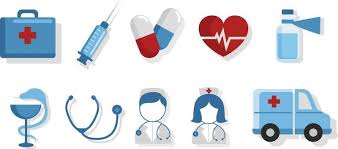CONQUERING DIABETES: A Guide to Healthy Living in India
What is Diabetes?
Diabetes is a condition where the body struggles to regulate blood sugar (glucose) levels either due to inadequate insulin production or ineffective use of insulin. Insulin, in turn, is a hormone secreted by the pancreas which plays a crucial role in regulating blood sugar levels. There are three primary types of diabetes:
|
Type 1 Diabetes
|
Type 2 Diabetes
|
Gestational Diabetes
|
|
An autoimmune condition where the body stops producing insulin as it occurs when the body's immune system attacks and destroys insulin-producing cells in the pancreas. This is typically diagnosed in childhood or adolescence.
|
Type 2 Diabetes is the most common type, often associated with lifestyle factors like obesity, physical inactivity, and poor diet. Surprisingly, it accounts for nearly 90% of all cases globally.
|
Temporary diabetes which develops during pregnancy and usually resolves after childbirth. However, it increases the risk of developing Type 2 diabetes later in life.
|
Recognizing Symptoms Early
While early-stage diabetes may not exhibit noticeable symptoms, as the condition progresses, individuals may experience:
ü Excessive thirst or hunger
ü Unexplained/sudden weight loss
ü Frequent urination (especially at night)
ü Persistent fatigue & weakness
ü Blurred vision
ü Tingling or numbness in the hands or feet
ü Slow-healing wounds
Timely detection is key to managing diabetes effectively. Hence, be on the lookout for these symptoms. If you experience these symptoms, consult a healthcare professional immediately.
Why is Diabetes Prevalent in India?
Several factors contribute to the high prevalence of diabetes in India, including:
I. Genetics: Indians are genetically predisposed to insulin resistance.
II. Urban Lifestyle: India's recent culinary culture and sedentary lifestyles contribute significantly to diabetes cases. Increased consumption of processed foods, sedentary habits, and rising obesity rates are significant contributors.
III. Lack of Awareness: As per the Ministry of Health and Family Welfare, nearly 50% of diabetes cases in India remain undiagnosed, highlighting the need for increased awareness. Many remain undiagnosed due to limited access to healthcare and inadequate awareness of symptoms.
Hence, Indian families must support healthier habits at home. From meal planning to encouraging physical activity, small changes can have a big impact. Studies have shown that a 5-10% weight loss can significantly improve blood sugar control in people with type 2 diabetes.
Prevention is Better Than Cure
While there's no definitive cure for diabetes, adopting a healthy lifestyle can significantly reduce the risk as well as the likelihood of developing the condition. Here are some actionable steps:
I. Adopt a Healthy & Balanced Diet: Include fiber-rich foods, whole grains, and lean proteins while reducing sugar and saturated fat intake. Excess weight, especially around the waist, is a major risk factor for type 2 diabetes.
II. Stay Active & Exercise Regularly: Engage in at least 30 minutes of moderate-intensity exercise daily, such as walking, yoga, or cycling.
III. Maintain a Healthy Weight: Studies show that losing even 5–7% of body weight can reduce the risk of Type 2 diabetes by over 50%.
IV. Regular Check-ups: Early diagnosis through routine blood sugar testing can help manage prediabetes effectively. Regular blood sugar screenings can detect prediabetes early and prevent progression
Managing Diabetes Like a Pro
Living with diabetes requires consistent care and lifestyle adjustments. For those diagnosed with diabetes, controlling blood sugar levels is essential to avoid complications, while effective management involves a collaborative effort between the patient and healthcare provider, Consider the following points:
Monitor Blood Sugar Levels: Use a glucometer to check your glucose levels regularly and keep a log as it helps in making informed decisions about diet, exercise, and medication.
Adhere to a Medication Plan: Depending on the type of diabetes, medication may be prescribed to regulate blood sugar levels. Take insulin or prescribed (oral) medications as directed by your doctor.
Follow a Diabetes-Friendly Diet: A well-balanced diet is crucial for managing diabetes. A diabetes-friendly diet can help manage blood sugar levels. Consult with a healthcare professional or registered dietitian for personalized dietary advice. Avoid long gaps between meals and maintain consistent meal timing. Include foods with a low glycemic index, such as lentils, oats, and leafy greens.
Exercise & Manage Stress: Physical activity helps improve insulin sensitivity, blood sugar control and overall well-being. Also, practice relaxation techniques like meditation, mindfulness, or deep breathing exercises to control stress, which can impact blood sugar levels.
Thus, bear in mind that managing diabetes is about striking a balance—maintaining blood sugar levels, staying active, and adopting a positive mindset.
Diabetes is a manageable condition when approached with the right knowledge and strategies. Early diagnosis and consistent care can significantly improve quality of life.
You’re not alone! At Krsnaa Diagnostics, we’re committed to supporting you every step of the way. From blood sugar testing to personalized care plans, we are here to help you take control of your health.
Take charge of your health today by making informed choices with Krsnaa.
Allow us to guide you through this journey like your saarthi.
Book a Diabetes Check-up Today!
